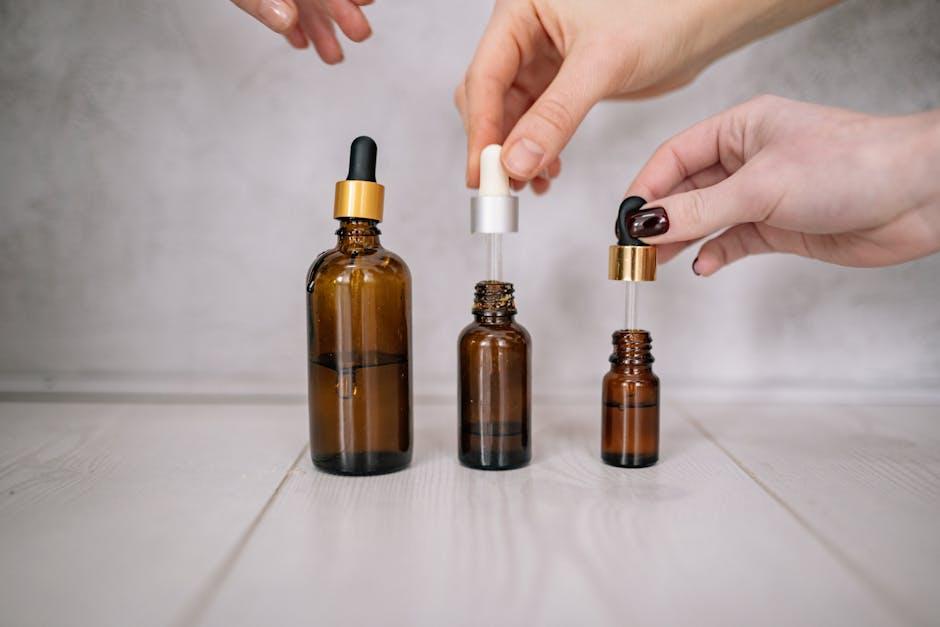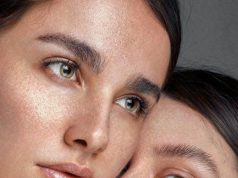In the ever-evolving world of skincare, where serums and creams promise the elixir of youth, myths often lurk beneath the surface like well-guarded secrets. These myths, passed down through generations or amplified by social media influencers, can lead even the most discerning among us astray. It’s time to embark on a journey through the labyrinth of skincare misconceptions, shedding light on the truths that have been obscured by popular belief. In this article, we will unravel some of the most pervasive skincare myths you should stop believing, guiding you towards a more informed and effective skincare routine.
Debunking the Pore Minimization Myth
It’s time to clear the air about one of the most pervasive skincare myths out there. Pores, those tiny openings on your skin, are a natural and essential part of your body’s largest organ. Despite what many skincare products might claim, there’s no magical potion that can make them disappear or permanently shrink them. Instead, the size of your pores is largely determined by genetics and can be influenced by factors like age and skin type. While certain treatments may temporarily reduce their appearance, they cannot alter their actual size.
So, what can you do if you’re concerned about your pores? Consider these practical approaches:
- Keep it Clean: Regular cleansing can help remove dirt and oil that may exaggerate pore size.
- Exfoliate Wisely: Use gentle exfoliants to prevent clogged pores and improve skin texture.
- Hydrate: Moisturizing can maintain your skin’s barrier and prevent overproduction of oil.
- Sun Protection: Apply sunscreen daily to prevent sun damage, which can make pores appear larger over time.
By focusing on maintaining healthy skin rather than obsessing over pore size, you can achieve a radiant complexion that embraces your skin’s natural beauty.

Understanding Natural vs. Synthetic Ingredients
In the world of skincare, the debate between natural and synthetic ingredients often leads to confusion and misinformation. Natural ingredients are derived from plants, minerals, or animal by-products, and are often praised for their perceived purity and simplicity. However, it’s important to remember that natural doesn’t always mean better or safer. For instance, poison ivy is natural, but not something you’d want on your skin. On the other hand, synthetic ingredients are created in laboratories and are designed to mimic or enhance natural compounds. These ingredients are meticulously tested for safety and efficacy, and often offer more stable formulations with a longer shelf life.
- Effectiveness: Both natural and synthetic ingredients can be effective, but it’s essential to focus on what works best for your skin type.
- Allergies: Natural ingredients can sometimes cause allergic reactions just as synthetic ones can, so always perform a patch test.
- Sustainability: Not all natural ingredients are sustainable, and some synthetic options may actually have a lower environmental impact.
Ultimately, the key is to look beyond the label and understand the role each ingredient plays in your skincare routine. By doing so, you can make informed choices that are tailored to your individual needs.

The Truth About Expensive Skincare Products
It’s easy to fall for the allure of high-end beauty products, with their promises of youthful skin and glamorous packaging. However, the reality is that a higher price tag doesn’t necessarily mean higher quality or better results. Often, these products are priced based on branding and marketing rather than the actual efficacy of their ingredients. Many affordable skincare options contain active ingredients that are equally effective. It’s crucial to understand that the effectiveness of skincare products largely depends on the formulation and concentration of these active ingredients, not the price.
- Branding over Substance: Expensive brands often invest heavily in marketing and packaging rather than product innovation.
- Active Ingredients Matter: Look for key ingredients like retinol, hyaluronic acid, and vitamin C, which can be found in both high-end and budget-friendly products.
- Personalized Skincare: Skin type and personal needs should guide your choices more than the prestige of a brand.
while it’s tempting to equate cost with quality, being informed and discerning about what your skin truly needs can save you money and help you achieve better results.

Why Sunscreen Isnt Just for Sunny Days
When the clouds roll in and the skies turn gray, it’s easy to shelve your sunscreen until the sun decides to shine again. But UV rays don’t take a day off, even when the sun is hidden behind a thick layer of clouds. In fact, up to 80% of UV rays can penetrate through the clouds, sneaking up on your skin when you least expect it. This makes sunscreen an essential part of your daily skincare routine, no matter what the weather forecast says.
- UV Exposure: UV rays can cause skin damage that leads to premature aging, wrinkles, and even skin cancer.
- Reflective Surfaces: Surfaces like water, snow, and even concrete can reflect UV rays, increasing your exposure.
- Indoor Protection: UV rays can pass through windows, so sunscreen is important even if you’re indoors but near sunlight.
By making sunscreen a staple in your skincare regimen, you’re investing in the long-term health of your skin. So, next time you reach for your umbrella, don’t forget the SPF!






























